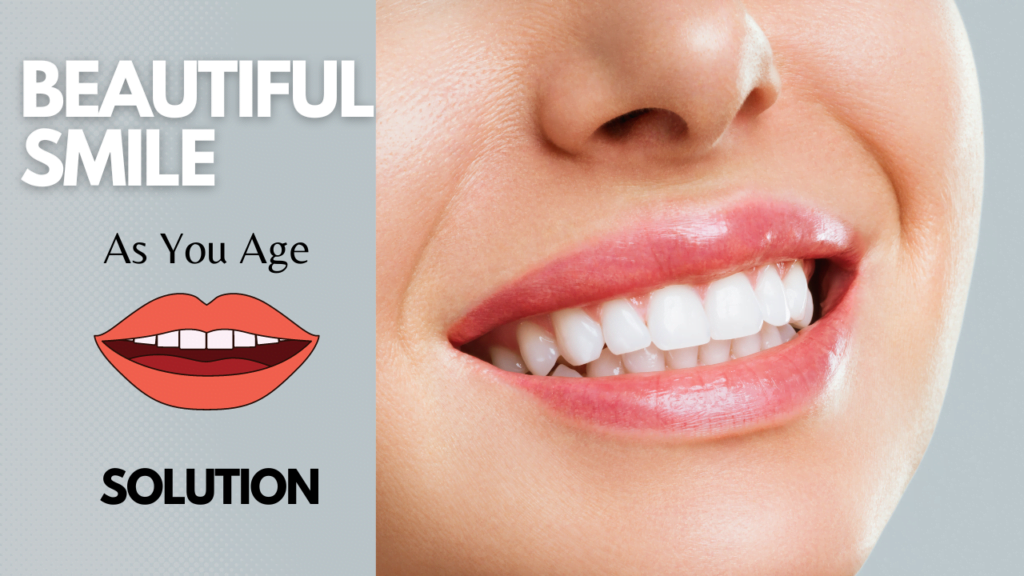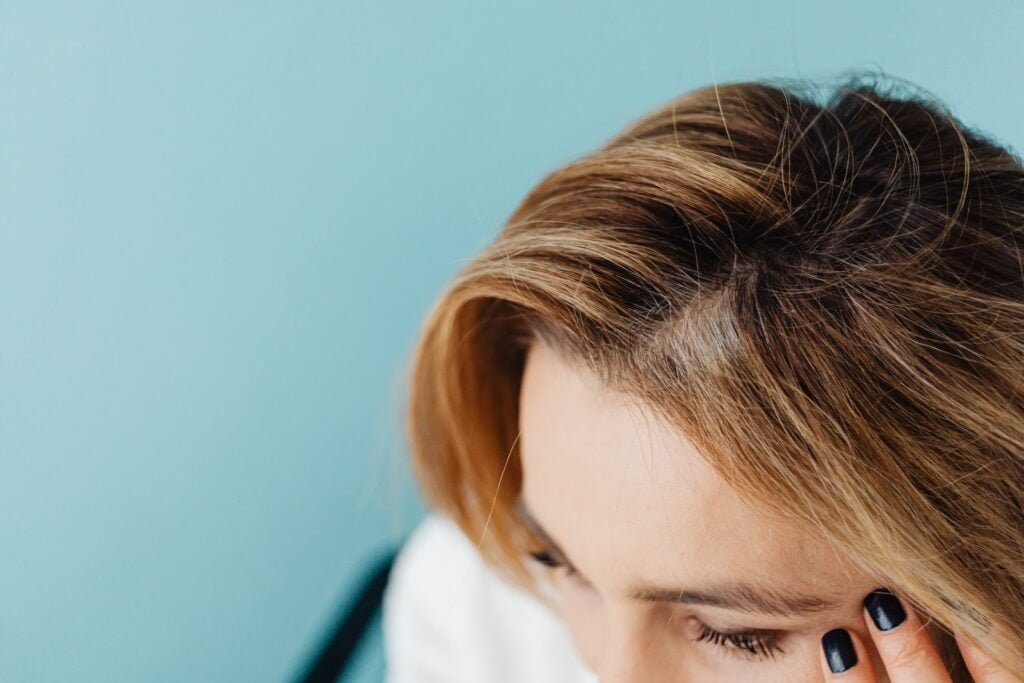Aging Hair Care: Recognizing Signs and Addressing Hair Loss
As we grow older, our hair experiences changes that can impact our appearance and confidence. In this article, we will explore the signs of aging hair, share effective hair care tips, and address concerns about hair loss among older individuals.
Fortunately, with the right knowledge and care, we can manage these changes and maintain healthier, more vibrant hair. We will discuss various hair care techniques, including hydration, gentle cleansing, scalp care, and providing essential nutrients to nourish our hair.
Let’s embark on this journey towards healthier and more resilient hair together!
Some of the links in this post are affiliate links. This means if you click on the link and purchase the item, I will receive an affiliate commision at no extra cost to you. All opinions remain my own. Read more on our Privacy Policy page
SIGNS OF AGING HAIR: Thinning and Loss of Volume
Aging Hair Care

What is thinning hair?
Thinning hair refers to a decrease in the number of hair strands on the scalp. It is characterized by wider partings and increased visibility of the scalp. Both men and women can experience thinning hair as they age.
How does aging contribute to loss of volume?
The natural aging process affects the hair follicles, leading to decreased activity and reduced hair density. This, in turn, results in a loss of volume and body in the hair.
Thinning and loss of volume in aging hair can be attributed to various factors. These include the aging process itself, hormonal changes, genetics, and environmental factors.
How can I care for thinning and limp hair?
Caring for thinning and limp hair involves implementing effective hair care strategies. Some approaches include nourishing the hair with essential nutrients, adopting protective measures against external damage, and seeking professional advice for personalized solutions.
How does aging impact hair texture and color?
As we age, our hair undergoes noticeable changes in both texture and color, requiring adjustments in our hair care approach.
Texture Changes:
- Aging can make the hair feel more brittle, dry, and coarse, primarily due to reduced natural oil production from the scalp.
- Thinning of individual hair strands can lead to decreased volume and body.
- Wiry or frizzy hair may become more prevalent, making it challenging to achieve smooth and manageable styles.
Color Changes:
- Graying of hair is a natural part of the aging process. The pigment-producing cells in the hair follicles gradually produce less melanin, resulting in gray or white hair.
- Some individuals may experience uneven distribution of pigment, leading to variations in color or patches of gray hair.
How does aging contribute to dryness of the scalp and hair?
Scalp Dryness:
- The natural aging process often leads to reduced sebum production, resulting in a drier scalp. Sebum is the natural oil that moisturizes the scalp.
- Dryness of the scalp can cause itchiness, flakiness, and discomfort, necessitating targeted measures to alleviate these symptoms.
Hair Dryness:
- Aging can also result in decreased moisture retention by the hair strands, leading to dry and brittle hair.
- Dry hair is prone to breakage, frizz, and a lackluster appearance, emphasizing the need for proper hydration and nourishment.
>> Nutrafol Men’s Hair Growth Supplements

>> Women’s Vegan Hair Growth Supplements

Aging Hair Care: Effective Hair Care Techniques
Aging Hair Care

Hydration and Moisture:
- Stay hydrated by drinking an ample amount of water daily to keep your hair moisturized from within.
- Opt for moisturizing shampoos, conditioners, and hair masks to restore and retain moisture in your hair strands.
Gentle Cleansing and Scalp Care
- Choose mild, sulfate-free shampoos to avoid stripping your scalp of its natural oils, which can contribute to dryness.
- Pamper your scalp with regular massages to stimulate blood flow and maintain a healthy scalp environment.
- Consider using specialized scalp exfoliating products to remove buildup and promote a clean and balanced scalp.
Essential Nutrients for Nourishment
- Maintain a well-balanced diet rich in vitamins, minerals, and proteins to provide essential nourishment for healthy hair growth.
- Include fruits, vegetables, lean proteins, whole grains, and healthy fats in your meals to support overall hair health.
Protection from External Factors
- Safeguard your hair from harmful UV radiation by wearing hats or using hair products with built-in UV protection.
- Minimize exposure to environmental pollutants and chemicals that can damage your hair.
- Prioritize using heat protectant products before styling with hot tools to prevent heat damage and minimize breakage.
Recommended Supplement for Aging Hair
Aging Hair Care
Folifort is recommended for aging hair due to its potential to address specific concerns associated with the aging process. Here’s why it may be beneficial:
- Revitalizes Aging Hair Follicles: Aging hair follicles naturally weaken and become less active. Folifort’s formula is designed to strengthen and stimulate these follicles, supporting their health and function. By providing essential nutrients and promoting natural regeneration, Folifort helps maintain the vitality of aging hair.
- Addresses Thinning and Hair Loss: Thinning hair and hair loss are common challenges with aging. Folifort’s combination of ingredients, including Fo-Ti, Biotin, Saw Palmetto, and White Peony root, targets the root causes of hair loss, potentially reducing hair fall and supporting regrowth.
- Enhances Hair Thickness and Volume: Aging hair often becomes thinner and lacks volume. Folifort’s revitalizing ingredients work to promote thicker and fuller hair growth, restoring a more youthful appearance with increased density and volume.
- Nourishes and Protects: The natural ingredients in Folifort, such as Horse Tail Extract, Nettle roots, and essential vitamins, provide nourishment to the scalp and hair follicles. This nourishment helps combat dryness, improve scalp health, and protect against environmental damage, which are common concerns associated with aging hair.

➡No.1 supplement for hair loss here FOLIFORT HAIR GROWTH – STOP HAIR LOSS & GREYING
Understanding Hair Loss Causes
Aging Hair Care

Hair loss is a common concern as we age, and understanding its causes is crucial for effective solutions. Several factors contribute to aging hair loss:
Hormonal Changes
Hormonal fluctuations during menopause for women and andropause for men can lead to hair thinning and loss. These changes affect the hair growth cycle, resulting in shorter and finer hair strands.
Genetic Predisposition
Family history plays a significant role in hair loss. If your parents or close relatives experienced hair loss, you may be genetically predisposed to it as well. Androgenetic alopecia, also known as male or female pattern baldness, is the most common genetic hair loss condition.
Age-Related Factors
Aging weakens the hair follicles, making the hair thinner and more fragile. The hair growth cycle slows down, leading to a reduced rate of hair regrowth.
Medical Conditions and Medications
Certain medical conditions like thyroid disorders, autoimmune diseases, and scalp infections can contribute to hair loss. Additionally, certain medications, including chemotherapy drugs, may cause hair loss as a side effect.
Lifestyle and Environmental Factors
Poor nutrition, excessive stress, smoking, and exposure to pollutants can negatively impact hair health and contribute to hair loss.
How to Keep Your Hair Healthy and Vibrant as You Age
Lifestyle Adjustments for Hair Loss Prevention
Aging Hair Care

In addition to using specialized hair care products, certain lifestyle adjustments can help prevent or minimize hair loss. Consider the following modifications:
Nourishing Diet: Maintaining a balanced diet provides essential nutrients for healthy hair growth. Include foods rich in vitamins (A, C, and E), minerals (iron and zinc), and proteins. Opt for a variety of fruits, vegetables, lean meats, whole grains, and healthy fats to support optimal hair health.
Stress Management: High levels of stress can contribute to hair loss. Incorporate stress management techniques into your routine, such as regular exercise, meditation, deep breathing exercises, or engaging in activities that help you relax and unwind. Managing stress effectively can positively impact overall health, including the health of your hair.
Gentle Hair Care: Avoid aggressive brushing or combing, as it can damage the hair follicles and lead to breakage. Opt for wide-toothed combs and handle your hair with care when detangling. Minimize the use of heat styling tools, such as curling irons or straighteners, as excessive heat can weaken the hair strands.
Scalp Care: Maintain a clean and healthy scalp by regularly washing your hair with a gentle shampoo. Avoid using harsh products that can strip the scalp of its natural oils. Stimulate your scalp through regular massages to promote blood circulation, which nourishes the hair follicles. ➡ FOLIFORT HAIR GROWTH – STOP HAIR LOSS & GREYING
Quit Smoking: Smoking has been linked to hair loss and premature graying. If you smoke, consider quitting or reducing tobacco consumption to support overall hair health.
UV Protection: Prolonged exposure to the sun’s harmful UV rays can damage the hair and scalp. Protect your hair by wearing a hat or using hair products with built-in UV protection when spending time outdoors.

Conclusion – Aging Hair Care
In conclusion, Aging Hair Care involves a comprehensive approach that considers the signs of aging and incorporates effective hair care techniques and lifestyle adjustments. By understanding the signs such as thinning, changes in texture and color, and scalp dryness, we can address these concerns and promote healthier hair.
Embracing the natural aging process and taking proactive steps to care for our hair allows us to maintain its health, vitality, and beauty as we gracefully age.

references: https://www.saga.co.uk/magazine/style-beauty/beauty/hair-care-for-the-over-50s, Your Guide To Aging, Thinning Hair: 5 Simple Tips: https://health.clevelandclinic.org/your-guide-to-aging-hair/






